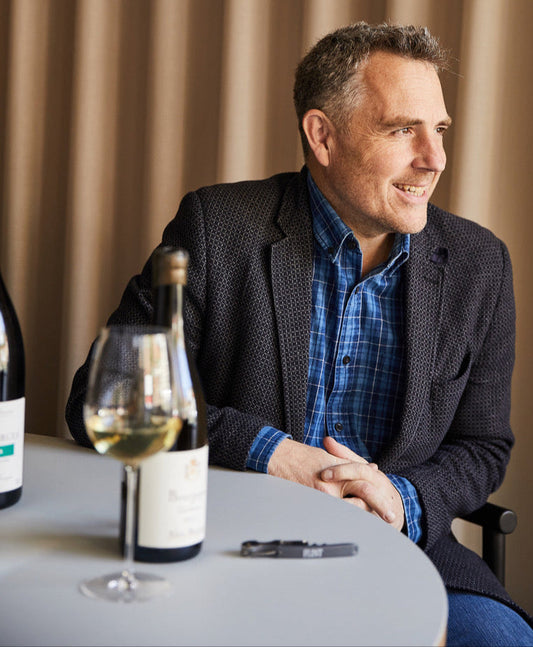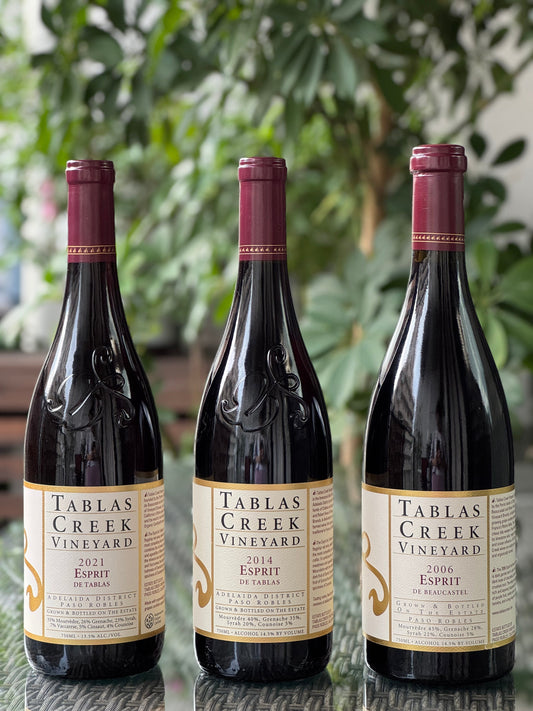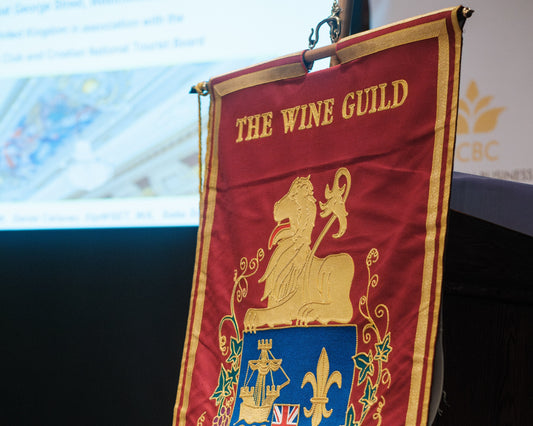| Watching Steven Spurrier taste a wine was like watching a tea master sip tea. Steven didn’t rush. He didn’t chew his wines and start scribbling notes right away. He considered wine slowly. He held a wine glass as a violinist might hold a bow—confidently, and with a certain intimacy. How many glasses of wine had he ever held? I asked him that when I interviewed him just four weeks before he died (although I did not know it at the time, he knew it would be the last interview he would give). He estimated that he had tasted perhaps 300,000 wines in his lifetime.
I met Steven about 40 years ago on a trip to Napa and Sonoma. I was in my 20s, just starting out as a wine writer, and had flown out from New York to write about one of the wine auctions being held that summer. Most California auctions back then were pretty homespun: wine bottles set up on planks of wood propped between wine barrels; everyone in jeans; square dancing wasn’t unheard of (no kidding).
You couldn’t miss Steven of course. Not only because of his Savile Row suits, handmade shoes, and upper class British accent (occasionally interrupted by a stutter), but because he was so effortlessly charming and comfortable in himself. I remember after a long hot day of tasting and being jeeped through vineyards, looking at soil pits, we got back to the hotel and went swimming, showing up for dinner later, both of us with dripping wet hair. I think he loved being in California because of times like that.
Back then I, like most American journalists, was a little wary of our British colleagues. None of us Americans had been on the Cambridge wine team; we hadn’t drunk “Bolly” while reading history at Oxford; we weren’t on a first-name basis with the owners of the First Growths. I imagine that most British wine writers in the 1970s found us American writers… amusing. It was always clear to us whose opinion of a wine they thought mattered most.
But Steven wasn’t like that. His generosity of spirit was immediately obvious. He had the kind of kindness that people who know sadness often possess.
In the early 2000s I was, along with Steven and the Australian MW Michael Hill-Smith, a wine consultant to Singapore Airlines. We’d be together all day for a week, blind tasting up to 200 wines a day. It wasn’t fun or glamourous (we tasted, standing up, in the fluorescent-lit basement of a building). But we were free at night and I remember those nights with great fondness. Steven could be counted on to find a bottle of Champagne which we’d drink with dim sum at the hotel’s rooftop bar before going out into the steamy Singaporean night to find a good place for dinner. Singapore is famous for its messy, eat-with-your-fingers chili crab and Steven always looked sheepishly happy with a paper bib tied over his cream-coloured linen suit.
Three years ago I visited Bride Valley, Steven and his wife Bella’s vineyard in Dorset, England. He was out of the country at the time, so I sat in the glass enclosed garden pavilion with Bella and his daughter Kate and tasted his sparkling wine. It was light and airy and delicious and I thought about how Steven, after a lifetime of writing about other people’s wines, had finally become a wine producer himself. He wasn’t boastful about it however. If anything, like a true vigneron, he fretted about the weather and about all the things that Nature, not he, controlled.
A week later, I met him for lunch at Boodles, the private gentleman’s club to which he belonged. To me, it seemed an extravagant thing to do in the middle of the day – have a three-hour formal lunch in a whisper-hushed dining room. But Steven was full of great energy, happily ordering half bottles of Vouvray and a simple Bordeaux for us to share. Afterward, outside on the sidewalk on St James’s Street, the air was alive with the bustle of London. Steven said good-bye and then a few steps later, turned and waved back at me, his apricot-coloured tie and pocket scarf glinting in the sun.
Karen MacNeil is the author of the award-winning book, The Wine Bible. Karen's interview with Steven Spurrier was published in WineSpeed, the digital newsletter of wine.
| 



